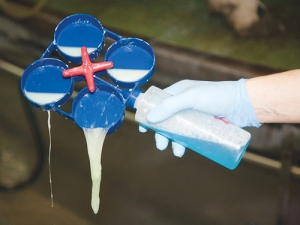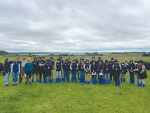While farmers prepare their herds for mating they should keep the milking team focused on preventing mastitis says Dairy Australia's animal health and fertility programme manager, Dr Kathryn Davis.
Research shows that sub-clinical and clinical mastitis can damage the fertility of dairy cows.
Any type of inflammation in the cow's body can affect her reproductive system. Inflammation produces chemicals that can affect the release of hormones (required for reproduction) from the cow's brain, and directly affect the function of the ovaries and uterus.
"If a cow gets mastitis before mating, it affects the production of oestradiol (a hormone which allows expression of heat) and therefore the time before mating and calving will be longer than for those cows not affected by mastitis; in fact research has shown a delay of up to 22 days," says Davis.
In 2013, Countdown 2020 estimated the financial cost of each clinical case of mastitis to be A$277 which can add up to costs in the thousands for a herd-wide outbreak. Dairy Australia's Countdown shed guides and countdown mastitis toolkit app help prevent or minimise outbreaks.
Davis says while problems caused by mastitis were well known including extra labour, discarded milk, reduced milk production in the remaining lactation, cow welfare issues, medication costs, increased culling rates and the risk of antibiotic residues, the effects on fertility are more difficult to see and can occur months later.
Dairy Australia's Countdown shed guides and videos for farmers and their staff remind milkers of the recommended practices to reduce the risk of mastitis, she says.











